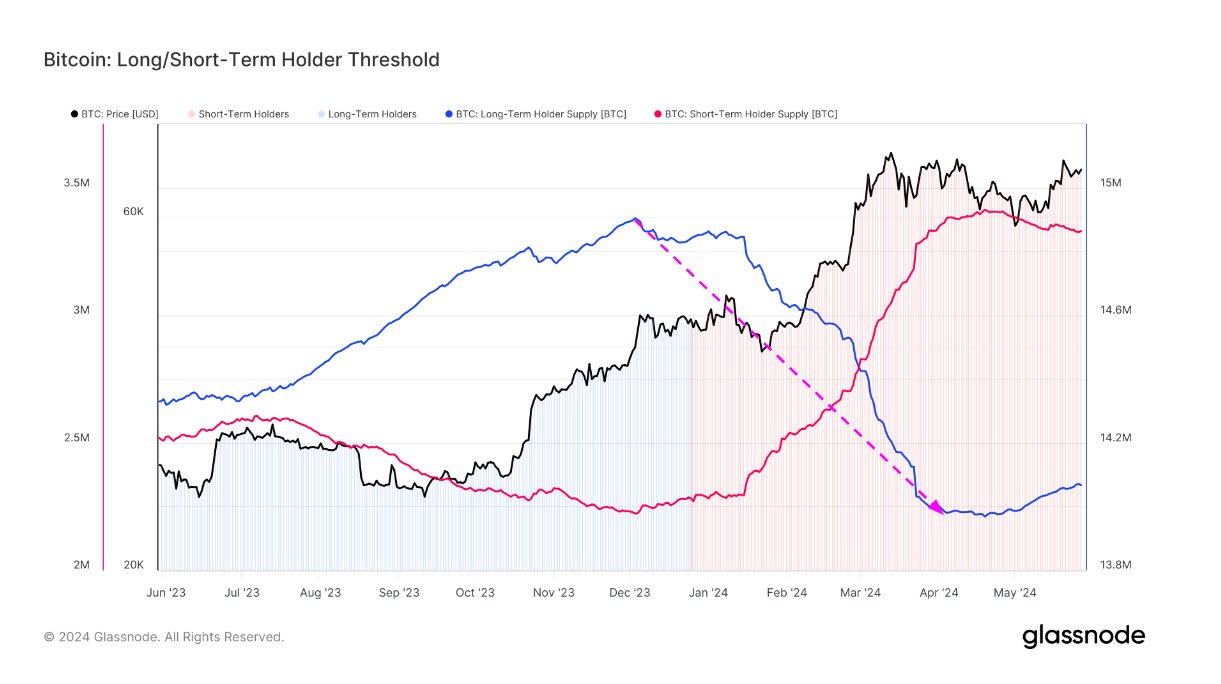Is Mt. Gox A Worry For Bitcoin? Crypto Analyst Weighs In
Bitcoin outflows from the Mt. Gox exchange have occurred in the past day, making some worry about potential bearish effects. Here’s what an analyst thinks.
Mt. Gox Has Made Several Bitcoin Transactions In The Last 24 Hours
During the past day, several movements from wallets associated with the bankrupt cryptocurrency exchange Mt. Gox have been spotted on the Bitcoin blockchain. The platform had announced plans to repay its creditors, so the transactions are likely related to them.
Mt. Gox has moved out 137,890 BTC in total, worth almost $9.4 billion at the current cryptocurrency exchange rate. With these transfers, the market has become concerned about whether these tokens will move towards trading, adding to the selling pressure in the market.
As a result, the BTC price has fallen about 4% in the past 24 hours. While the market has reacted negatively to the news so far, some have wondered whether these withdrawals are actually going to be bearish.
Analyst James Van Straten discussed this in an X post and provided perspective on how a potential selloff arising out of these repayments would compare against another that BTC witnessed recently.
The distribution event in question is from the long-term holders (LTHs), which make up one of the two main divisions of the BTC market based on holding time.
All investors holding onto their coins since more than 155 days ago qualify for this cohort, while those who bought within the past 155 days are put in the short-term holder (STH) group.
The LTHs are considered to be the resolute side of the market, as they rarely participate in selloffs, while the STHs are the fickle-minded investors who regularly react to sector events by panic selling.
The recent rally in the asset, though, proved to be enough to move even these HODLers into selling, as the chart below shows their total supply.

As the graph shows, the LTH supply has been moving sideways in the last couple of months, but it was in a state of decline for five months before that.
In this selloff, the LTHs sold around 1 million tokens, of which around 340,000 BTC was linked to GBTC outflows. At the same time, this distribution from the LTHs occurred, though the coin’s price marched to a new all-time high, implying that the market could absorb this massive selling pressure just fine.
Straten notes that the Mt. Gox repayments are only about a tenth of this selloff, and not everyone who will get these tokens will decide to sell. At the very least, everyone wouldn’t sell at the same time.
Thus, given this fact, it’s possible that Bitcoin may not be affected by this distribution if demand for the cryptocurrency remains as strong as it has been recently.
BTC Price
Bitcoin had risen above the $70,000 level earlier, but the Mt. Gox news has brought the asset down to $67,700.


